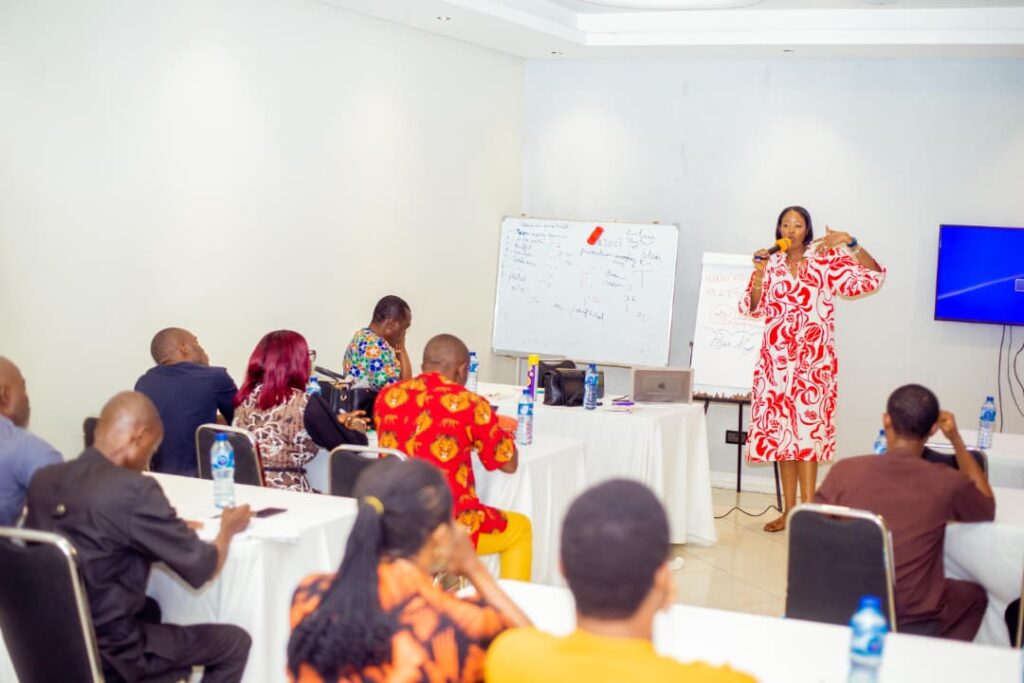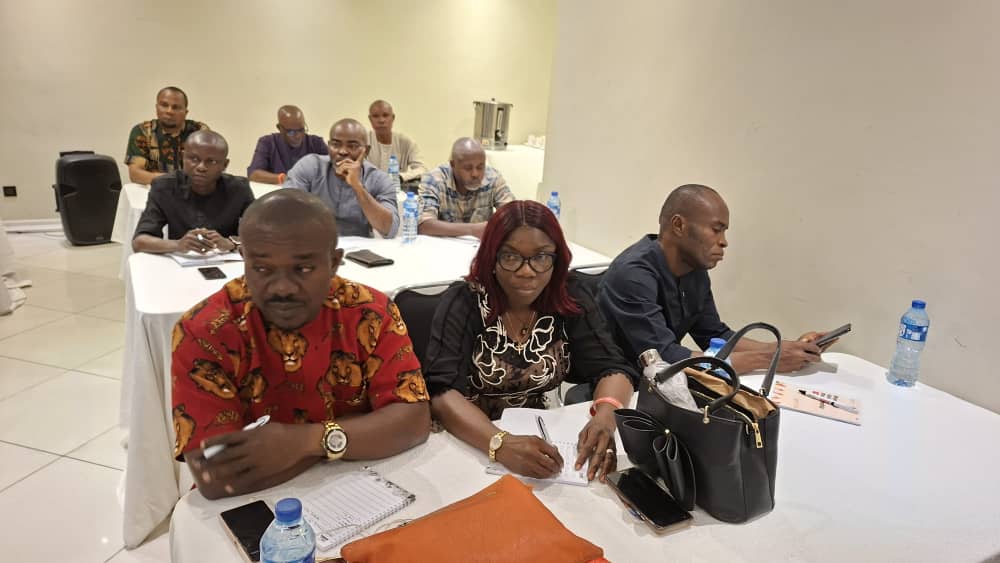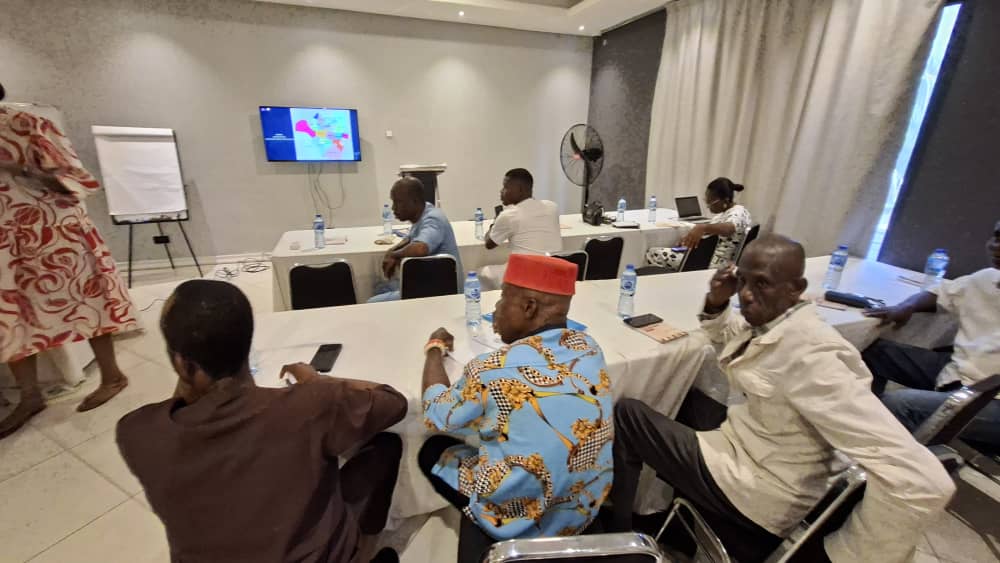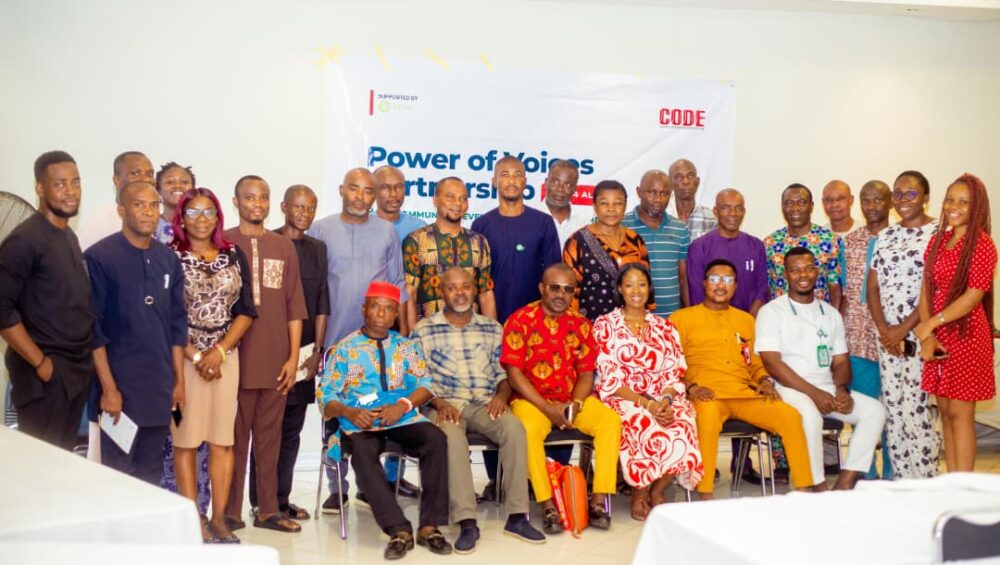Owerri, Imo State – August 13, 2025 – By Harriet Ijeomah
Connected Development (CODE), with support from Oxfam under the Power of Voices Partnership – Fair for All Project, has trained members of Host Community Development Trusts (HCDTs), civil society groups, community-based organisations, and the media in Imo State on project management principles and media advocacy.

The one-day town hall meeting in Owerri brought together 25 participants to strengthen their capacity in project implementation, fund and procurement management, effective communication, and community advocacy. The training forms part of the Fair for All Project’s objective to improve governance structures in communities impacted by extractive activities and ensure citizens’ voices are heard in decision-making processes.
Speaking at the event, Hyeladzira Mshelia, Assistant Director of Programs and Community Engagement at CODE, said the initiative seeks to equip community actors with practical skills to deliver impactful projects and hold leaders accountable.
“This workshop builds on issues raised during our previous peer-to-peer learning sessions, where concerns emerged about transparency in selecting trustees for HCDTs and the need for settlors to remit their statutory contributions. We are here to provide tools and strategies to address these governance gaps,” Mshelia stated, urging participants to remain steadfast in advocating for issues affecting their communities.
Chimezie Ebosie, State Support Officer for the Power of Voices Partnership Project in Imo State, further explained that the HCDT town hall is an effort by CODE to deepen the gains of the Petroleum Industry Act (PIA) 2021, which mandates oil companies also known as settlors to contribute 3% of their operating costs to their host communities.
“How these resources are used is essential to the development of oil-producing communities,” Ebosie noted. “Our aim is to equip HCDT members with the requisite skills in project management, resource management, stakeholder engagement, and advocacy.”

Also addressing the gathering, Odinaka Onuigbo, Communications Designer at CODE, noted that HCDTs face different challenges depending on their local contexts, which often hinder their ability to advocate effectively.
“Our research shows that while some trusts struggle with governance, others face delays in accessing funds for development. This is why we are encouraging host communities to leverage the media — from targeted social media campaigns and hashtags to local radio programming — to push their demands and amplify their most pressing needs,” Onuigbo explained.
The Power of Voices Partnership – Fair for All Project is a five-year global initiative funded by the Netherlands Ministry of Foreign Affairs and implemented in 14 countries, including Nigeria. In Nigeria, CODE leads the project in six oil-producing states, promoting economic justice, fiscal transparency, and inclusive governance in resource-dependent communities.
Host Community Development Trusts were created under the Petroleum Industry Act to channel a percentage of oil and gas revenues into development projects for host communities. However, many trusts have struggled with transparency, accountability, and timely remittances — issues the Fair for All Project aims to tackle through civic education, participatory budgeting, and public procurement monitoring.

By the end of the Owerri session, participants expressed renewed commitment to promoting transparency in their communities and pledged to adopt the advocacy tools shared during the training.





